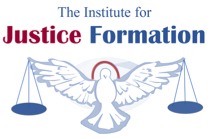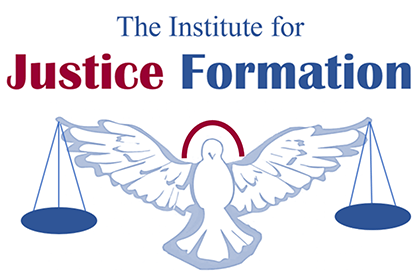The John Leland Center for Theological Studies
Arlington, VA
Facilitator: Samuel L. Feemster Office: Online
Office Hours: Online 5:00 – 7:00 p.m. Mon. & Tu. Class: 8:05 – 10:00p.m. Thurs.
EH3205 – In Search of Biblical Justice: A multi-focal perspective
Course Description:
Students in this course will identify some characteristic features of the Bible’s teachings on justice revealed through God’s self-disclosure and reflect upon their availability to be a catalyst for Biblical Justice in our world.
SIGNIFICANCE FOR LIFE AND MINISTRY: This course is designed to guide the student’s search for Biblical Justice by first examining what God declares about justice and righteousness in His word and secondly reflecting upon the responsibility of Christians to originate, implement, and sustain worship, educational, and advocational initiatives that promote the transformational characteristic of Biblical Justice for all persons across all callings who are interested in doing what is right and just, intrinsically.
Learning Outcomes: Through participation in this course, students will:
- Communicate the meaning of justice as revealed by God in Scripture
- Promote the pursuit of justice and righteousness as the character of God and the work of the Church
- Compare the centrality of justice in the life of Israel, the teachings of Jesus, and life in 21st Century churches where we worship
- Cultivate a working knowledge of essential language and concepts to inform the design, development, and implementation of innovations intended to dismantle systems and structures that sustain injustice
COURSE FORMAT: This semester-long course will be taught as a series of lectures with some collaborative discussion. Each week, students will participate in a 1-hour group discussion to originate worship, educational, or advocacy initiative that may lead to the critique of an identified structural or systemic source of an injustice experienced in communities across our nation as well as communities in other countries. This initiative will be a group project for the class. Student assessment will include attendance, weekly assignments, participation in group discussions, a final paper disclosing how this course impacted the baseline information they provided at the first class, and their contributions to the group project.
Required Readings for EH2305
Barram, Michael, Biblical Justice and Christian Formation (Eerdmans, Grand Rapids, MI., 2018) ISBN 978-0-8028-7507-5
Nicholas, Jessica, God Loves Justice: A User-Friendly Guide to Biblical Justice & Righteousness (S&E Educational Press, LA, Cal., 2017) ISBN 978-0-9989031-0-1
St. Ambrose: On the Duties of the Clergy (Benediction Classics, Oxford., 2020) ISBN 978-1-84902-616-1
The Poverty and Justice Bible, (American Bible Society) ISBN 978-158516-973-3
Tisby, Jemar, The Color of Compromise: The Truth About the American Churches Complicity in Racism (Zondervan Press, Grand Rapids, MI., 2018) ISBN 978-0-310-5927-8
Supplemental Text:
Gilbert, Kenyatta R. Exodus Preaching: Crafting Sermons about Justice and Hope (Abingdon Press, Nashville, TN., 2018) ISBN – 13:978-1-5018-3257-4
Houston, Walter J., Justice – The Biblical Challenge (UK: Equinox Publishing Ltd., London, SW3 55R, 2010) ISBN 9781-84553-888-0 (Paperback $42.00; Kindle $31.78) On Reserve
Marshall, Chris; The Little Book of Biblical Justice (Intercourse, PA: Good Books, 2005) ISBN 978-1-56148505-5 (Paperback $5.99; Kindle $5.99)
Westfall, Cynthia. L., and Dyer, Bryan, R., EDS, The Bible and Social Justice: Old Testament and New Testament Foundations for the Church’s Urgent Call (Pickwick Publications, Eugene, Or., 2015) ISBN 13:978-1-4982-3807-6 (Paperback $29.00; Kindle $ 9.99) On Reserve
PREREQUISITES: None
RELATIONSHIP TO CURRICULUM: This course meets a core curriculum requirement for the Masters of Christian Leadership (MCL), the Graduate Certificate in Leadership Studies, congregation and public life tracks, and the Graduate Certificate in Justice Formation.

